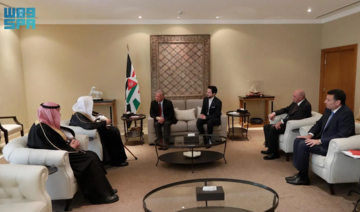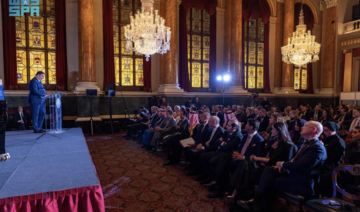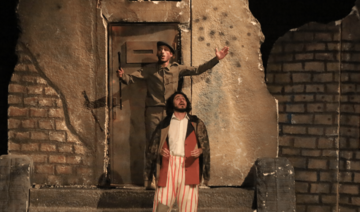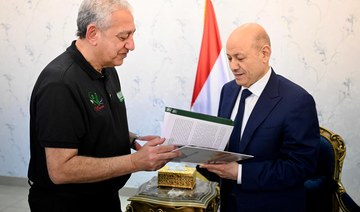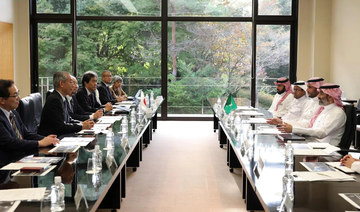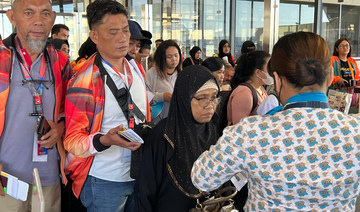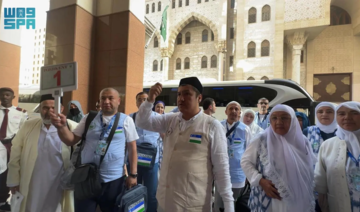JEDDAH: Some Saudis have developed fear of meat following stories of dubious-quality meat being smuggled into cities after Haj.
Despite attempts by the authorities to deter smugglers of sacrificial meat from selling illegally, some reportedly escaped detention. The problem is that many Saudis will eat such meat in restaurants, while some might attempt to sell it at cheaper prices.
It is reassuring, however, that most often authorities can control the quality of meat in restaurants and slaughterhouses.
Recently, civic officials foiled an attempt to smuggle and sell expired meat at one of the main entrances to Makkah. One of the officers, Hassan Balubaid, said his department confiscated about 150 kg of rotten meat.
The municipality of neighboring provinces caught 53 vehicles carrying 526 heads of livestock coming from the holy sites.
The news related to the safety and quality of food remains alarming.
Misfer Al-Harthy, 39, said he fears going to restaurants, especially those that rely heavily on the sale of cooked meat and rice, and has great difficulty convincing his two boys not to eat fast food because he does not trust the quality of food there.
Salem Al-Dossary, who usually eats only grilled food at restaurants, thinks the quality of the meat is not important because once exposed to the fire and cooked well, it ceases being harmful.
Bad meat fear keeps Saudis off eateries
Bad meat fear keeps Saudis off eateries

Shoura Council speaker heads to Algiers for Arab parliamentary forum
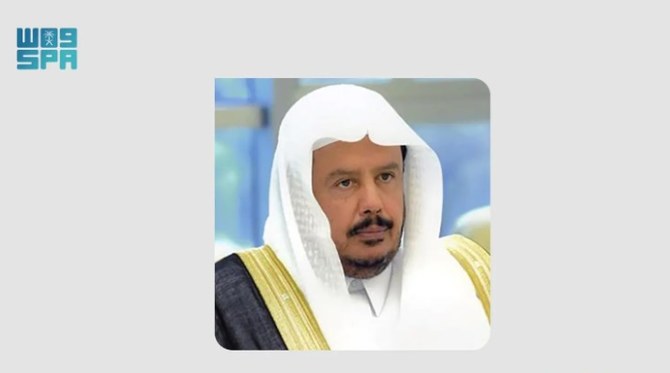
- The conference will be held in Algiers on May 26-27
- Al-Sheikh said that the Shoura Council’s participation in the conference stems from the Kingdom’s commitment to supporting joint Arab action
RIYADH: Speaker of the Saudi Shoura Council Dr. Abdullah bin Mohammed bin Ibrahim Al Al-Sheikh will lead the Kingdom’s delegation to the 36th Conference of the Arab Inter-Parliamentary Union, Saudi Press Agency reported.
The conference will be held in Algiers on May 26-27, and will be attended by heads of parliaments and councils from Arab countries.
In a statement, Al-Sheikh said that the Shoura Council’s participation in the conference stems from the Kingdom’s commitment to supporting joint Arab action, and its continued interest in establishing security, stability, and peace in Arab countries and the world.
The council seeks to support official diplomacy by taking part in regional and international parliamentary meetings and conferences, or through reciprocal visits to enhance parliamentary cooperation with various parliaments around the world, he said.
A consultative meeting between heads of parliaments before the conference will discuss several topics to be presented by its permanent committees, the Palestine Committee; the Social Affairs, Women, Children, and Youth Committee; and the Political Affairs and Parliamentary Relations Committee.
The Shoura Council delegation includes council member and member of the Executive Committee of the Arab Inter-Parliamentary Union Bandar bin Mohammed Asiri, council members Issa bin Mohammed Al-Issa and Ahmed bin Abdulaziz Al-Yahya, and several council staff members.
Saudi Theater and Performing Arts Commission launches Star Program to support productions
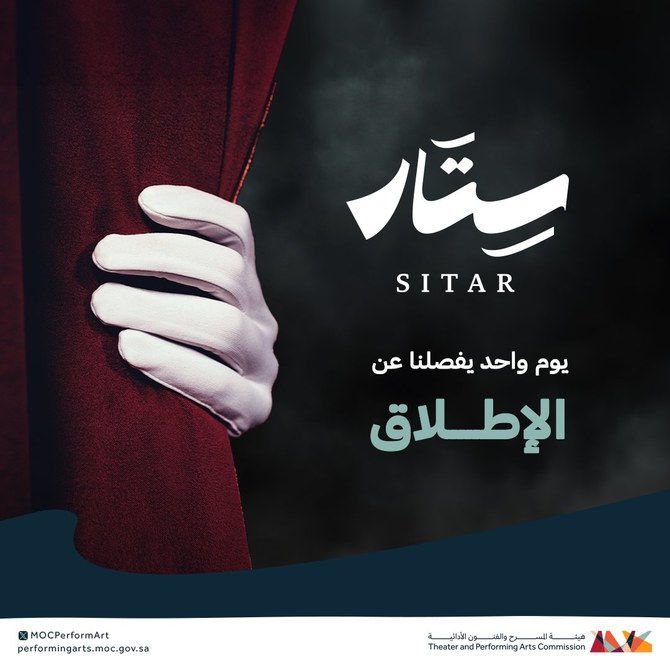
- The program is designed to support drama companies, institutions, associations, theater groups
- It aims to elevate the feasibility of local productions across financial, administrative, and artistic dimensions
RIYADH: The Theater and Performing Arts Commission has announced the launch of the Star Program, part of the Production Support Initiative, the Saudi Press Agency Reported.
The program is designed to support drama companies, institutions, associations, theater groups, and amateur clubs operating in the performing arts sector.
According to SPA, the program aims to elevate the feasibility of local productions across financial, administrative, and artistic dimensions. It seeks to encourage investment in the sector, develop and manage support programs for theatrical productions, and mitigate risks for entities looking to invest in the industry.
Submitted works will be reviewed by several committees to ensure they meet eligibility conditions and comparison criteria. Once approved, the selected applicants will begin implementing their projects in theater and performing arts.
The program aims to enhance beneficiaries’ technical, financial, and administrative skills, stimulate sustainable theatrical productions, and expand the expertise of practitioners in the theater and production sectors.
Works benefiting from the Star Program have the opportunity to be nominated for participation in the second edition of the Riyadh Theater Festival.
Those interested in participating in the program are encouraged to read the general terms and conditions via the following link: https://engage.moc.gov.sa/tpa/
UNOPS official commends Masam work in Yemen
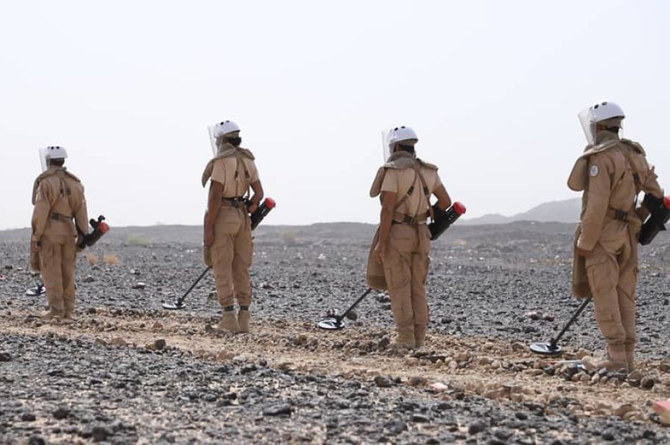
- The praise came during Frizby’s visit to Project Masam’s Team 22 in Taiz
- The delegation was also briefed on the progress of the Masam teams working in 18 districts
RIYADH: The mine action adviser at the UN Office for Project Services, Charles Frizby, has commended the work of Masam teams in Taiz governorate, Yemen.
The praise came during Frizby’s visit to Project Masam’s Team 22 in Taiz, where he was accompanied by Abdul-Qawi Al-Mekhlafi, the deputy governor of Taiz.
Masam is one of several Saudi initiatives set up to clear routes for humanitarian aid to reach Yemen’s citizens.
During the visit, Aref Al-Qahtani, the supervisor of Masam’s demining teams in Taiz, explained to the visiting delegation the nature of the areas where the teams are working.
The delegation was also briefed on the progress of the Masam teams working in 18 districts of Taiz governorate that are contaminated with mines, unexploded ordnance and improvised explosive devices.
They also discussed the extent of the damage to schools in the governorate caused by mines and IEDs, where the number of affected schools stands at 84, either completely or partially destroyed.
Robotics festival in Sabya to boost student skills
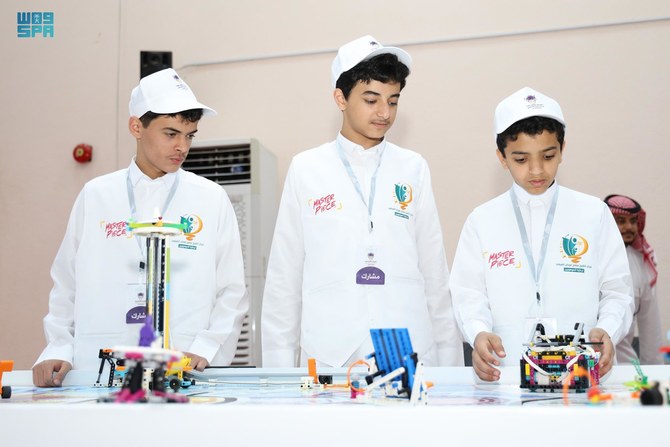
- The event was attended by Sabya Gov. Sultan bin Ajami bin Munikhar
- The festival also included artistic performances, films, speeches, and various other activities
JAZAN: The General Administration of Education in the Jazan region, represented by the Education Department of Sabya governorate, organized the Robotics and Artificial Intelligence Festival on Friday.
The event was attended by Sabya Gov. Sultan bin Ajami bin Munikhar.
It showcased the experiences of participating students, featuring robotics challenges, competitive rounds, creative designs, and research projects.
The festival also included artistic performances, films, speeches, and various other activities.
Malhi bin Hassan Aqdi, director general of education in Jazan region, emphasized the importance of the festival in enhancing the learning process, making it more enjoyable and effective. He said such festivals help students learn scientific concepts, develop experiments and discoveries, enhance social skills and cooperation, and acquire various programming skills.
Othman bin Mohammed Masli, director of education in Sabya, highlighted the strong connection between the sector, robotics and AI.
He said these fields drive growth and innovation while contributing to the Kingdom’s sustainable development goals. The festival offers a platform to showcase students’ creativity, highlight their participation, and inspire them to represent their nation in various forums.
Al-Sudais launches presidency’s largest plan yet for Hajj season
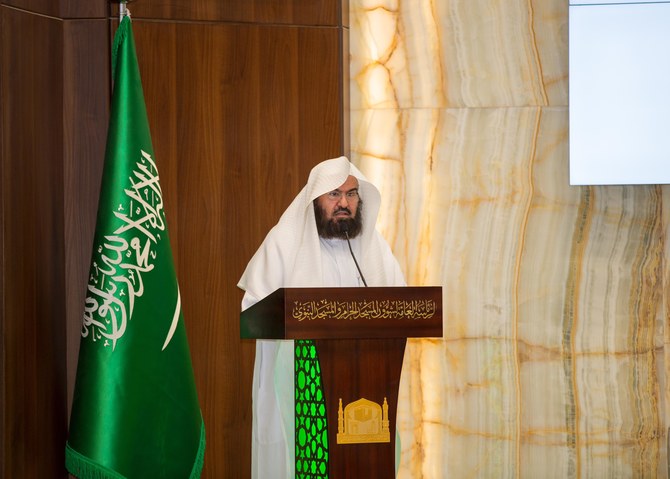
- Sheikh Dr. Abdulrahman Al-Sudais, President of Religious Affairs, described it as the largest religious operational plan yet undertaken by the presidency
- The plan is focused on serving pilgrims, enriching their religious experience, creating a devotional atmosphere, and launching 120 religious enrichment initiatives during the Hajj season
MAKKAH: The Presidency of Religious Affairs of the Grand Mosque and the Prophet’s Mosque on Thursday launched its operational plan for the 2024 Hajj season.
Sheikh Dr. Abdulrahman Al-Sudais, President of Religious Affairs, described it as the largest religious operational plan yet undertaken by the presidency. The plan is focused on serving pilgrims, enriching their religious experience, creating a devotional atmosphere, and launching 120 religious enrichment initiatives during the Hajj season.
In his opening speech during the inauguration of the plan at the headquarters of the presidency in Makkah, Al-Sudais said: “This year’s plan is the largest since the establishment of the presidency with its purely religious specializations.”
He explained that the plan is the result of the efforts of the presidency’s teams through preparation, planning and study, as well as the achievements of past seasons. The plan is designed in harmony and integration with the various agencies working in the Two Holy Mosques, which collaborate and cooperate with the presidency to serve pilgrims.
The plan for the 2024 Hajj season, he said, revolves around various religious enrichment paths, which include numerous events and hundreds of religious programs encompassing scientific and guidance lessons.
Al-Sudais said the presidency’s plan this year is dedicated to promoting volunteer and humanitarian work, recognizing the Two Holy Mosques as attractive environments for such efforts. This focus is based on religious and Saudi values, which highlight the importance of generosity and hospitality.
A digital axis focuses on enhancing the religious digital experience provided by the Two Holy Mosques. This includes integrating religious digital services, investing in technology and artificial intelligence, and using applications and digital media. Specific religious initiatives are being activated to achieve digital leadership and to reduce the barriers of space and time through these applications.


